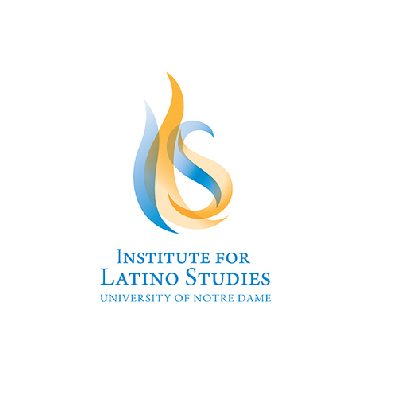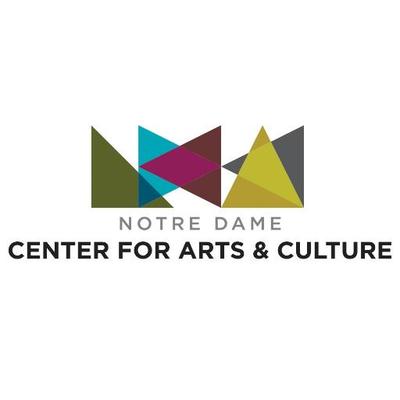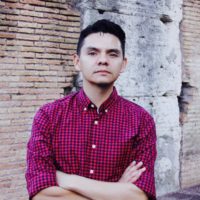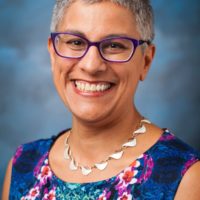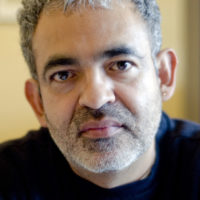Meet the Researchers
Thanks to a grant from the Humanities Without Walls consortium and its Global Midwest initiative funded by the Andrew W. Mellon Foundation, this cross-institutional project includes faculty from the University of Notre Dame, the University of Illinois at Chicago, the University of Nebraska-Omaha, the University of Dayton, the University of Minnesota, and Ohio State University.
Gilberto Cárdenas
Gilberto Cardenas is the Executive Director of the Notre Dame Center for Arts and Culture. He was the founding Director of the Institute for Latino Studies, 1999-2012 and he was Assistant Provost at the University of Notre Dame during this time and he held the Julian Samora Chair in Latino Studies, 1999-2012. He is a full professor in the Department of Sociology.
Dr. Cardenas taught at the University of Texas at Austin from 1975 to 1999. He has also served as the Executive Director for the Inter-University Program for Latino Research (IUPLR) from 1995 to 2013, a national consortium of 25 member centers and institutes.
He received his BA from the California State University at Los Angeles and his MA and PhD from the University of Notre Dame. His principal research interests are immigration, race and ethnic relations, Latino art and culture, and visual sociology.
Dr. Cárdenas has worked in the area of immigration for over forty-four years and has gained international recognition as a scholar in Mexican immigration. Three times named by Hispanic Business Magazine as one of the 100 most influential Latinos in the United States, Cárdenas has authored and edited numerous books, articles, monographs, and reports on topics covering several fields of specialization, including international migration, economy and society, and race and ethnic relations.
Juan Casas
Dr. Juan Casas is the interim director of OLLAS for the 2015-2016 academic year and an associate professor of Child Psychology. His teaching centers on child and adolescent development and his research interests focus on relational aggression and victimization as well as on issues related to various forms of bullying. Dr. Casas has written many scholarly articles and book chapters. He has published in top-tier journals including Developmental Psychology, Journal of Applied Developmental Psychology, Journal of Social Issues and Early Childhood Research Quarterly among others. He has broad editorial experience, most recently serving as Co-Editor in Chief of the Journal of Latino/Latin American Studies (JOLLAS). He is a founding member of the Bullying Research Network, Midwest Social Development Consortium and the Relational Aggression Conference series. In addition he is a member of the Society for Research on Adolescence and the Society for Research on Child Development where he is a member of the Ethnic and Racial Issues committee. He currently sits on the board of the Partnership 4 Kids.
Alex E. Chávez
As a Cultural Anthropologist trained in Linguistic Anthropology, Ethnomusicology, and Folklore, Chávez is committed to an integrative Anthropology that applies the tools of these sub-disciplinary fields to the realm of Latino Studies. His research explores Latino expressive culture in everyday life as manifested through language, expressive culture, and sound.
He has published in the Journal of Linguistic Anthropology, Latino Studies, Latin American Music Review, Southern Cultures, Música Oral del Sur, and has contributed to Celebrating Latino Folklore: An Encyclopedia of Cultural Traditions (2012), Iconic Mexico (2015), Latino, American, Dream (2016 Texas A&M Press), Making Sense of Language: Readings in Culture and Communication (2016 Oxford University Press), in addition to Con La Música a Otra Parte: Migración e Identidad en La Lírica Queretana (2010) published with the support of the Fondo Nacional para la Cultura y Las Artes in Mexico.
His most recent research project explored the performance of huapango arribeño—a musical form that hails from north-central Mexico—among undocumented Mexican migrants in the United States. Supported by the National Science Foundation and the Ford Foundation this work resulted in his doctoral dissertation and forms the basis of his book manuscript, Sounds of Crossing: Music, Migration, and the Aural Poetics of Huapango Arribeño (Duke University Press 2017).
Karen Mary Davalos
Karen Mary Davalos is Professor of Chicano and Latino Studies at the University of Minnesota, Twin Cities. She has published widely on Chicana/o art, spirituality, and museums. Among her distinctions in the field, she is the only scholar to have written two books on Chicana/o museums, Exhibiting Mestizaje: Mexican (American) Museums in the Diaspora (University of New Mexico Press, 2001) and The Mexican Museum of San Francisco Papers, 1971-2006 (The Chicano Archives, vol. 3, UCLA Chicano Studies Research Center Press, 2010, the Second Place winner of the International Latino Book Award for Best Reference Book in English). Her research and teaching interests in Chicana feminist scholarship, spirituality, art, exhibition practices, and oral history are reflected in her book, Yolanda M. López, (UCLA CSRC Press with distribution by University of Minnesota Press, 2008), the recipient of two book awards: 2010 Honorable Mention from the National Association of Chicana and Chicano Studies and 2009 Honorable Mention from International Latino Book Awards (Nonfiction, Arts–Books in English). As lead coeditor of Chicana/Latina Studies: The Journal of Mujeres Activas en Letras y Cambio Social (2003-2009), she revitalized the journal from its earlier incarnation of Voces into the only interdisciplinary, flagship, peer-review journal of a Latina/o professional organization. She serves on the Board of Directors of Self Help Graphics and Art, the oldest Chicana/o – Latina/o arts organization in the Southern California. Her latest book, Chicana/o Remix: Art and Errata since the Sixties is due in July 2017. It is informed by life history interviews with eighteen artists, a decade of ethnographic research in southern California, and archival research examining fifty years of Chicana/o art in Los Angeles since 1963. She was an executive member of the UCLA Chicano Studies Research Center’s advisory committee, L.A. Xicano, an initiative of the Getty Foundation Pacific Standard Time, which produced six Chicana/o art exhibitions in one season. Her research contributed to three of these exhibitions. In 2017, she will contribute to three Pacific Standard Time exhibitions, including the solo exhibition of Gilbert “Magu” Sanchez Lújan’s work at the University of California, Irvine. In 2012 she received the President’s Award for Art and Activism from the Women’s Caucus for Art.
María de los Angeles Torres
María de Los Angeles Torres is a Professor of Latin American and Latino Studies at the University of Illinois in Chicago. She received her PhD from the University of Michigan, Ann Arbor. She taught political science at DePaul University in Chicago from 1987 to 2005. She was a faculty Associate at Notre Dame’s Institute for Latino Studies, 2000-2001 and was a research fellow at Chapin Hall University of Chicago 2002.
She is currently Executive Director of the Inter-University Program for Latino Research, headquartered at UIC.
She is author of two books, The Lost Apple: Operation Pedro Pan, Cuban Children in the US and the Promise of a Better Future. Boston, Mass: Beacon Press, 2004 and In the Land of Mirrors: The Politics of Cuban Exiles in the United States. Ann Arbor, Michigan: University of Michigan Press, 1999. She is co-author of Citizens in the Present: Youth Civic Engagement in the Americas, University of Illinois Press, 2013. She edited By Heart/De Memoria: Cuban Women’s Journeys in and Out of Exile. Philadelphia: Temple University, 2002 and co-edited, Global Cities and Immigrants: A Comparative Study of Chicago and Madrid, Peter Lang, 2015 and Borderless Borders: Latinos, Latin American and the Paradoxes of Interdependence. Philadelphia, Penn.: Temple University Press, spring 1998. She has published chapters and essays on issues of diversity, US/Cuba relations, and immigration.
Victor M. Espinosa
One of the foremost experts on immigrant artist Martín Ramírez and an specialist on transnational migration and art, Víctor M. Espinosa holds a Ph.D. in sociology from Northwestern University and currently teaches at The Ohio State University. He is the author of Martín Ramírez: Framing His Life and Art (University of Texas Press, 2015) and El dilema del retorno: Migración, género y pertenencia en un contexto transnacional (El Colegio de Michoacan, 1998). His most recent project, with theater and performance studies scholar Ana Elena Puga, scrutinizes displays of suffering in late twentieth and twenty-first century artistic and social performances by and about undocumented migrants from Latin America to the United States. The book manuscript that resulted from this project, Heroes, Martyrs, and Saints: Performances of Suffering in Latin American Migration, is currently under review by Palgrave Macmillan press. Espinosa has also contributed to several art catalogs, including, Martín Ramírez (Marquand Books, 2007), Claiming Space: Mexican Americans in U.S. (Stanlee and Gerald Rubin Center for the Visual Arts, 2008), Renee Arceo: Between the Instinctive and the Rational (Chicago, 2010), Cristian Pineda: Santuarios (Mexico, 2015) and As Essential as Dreams (Yale University Press, 2016).
Olga U. Herrera
Olga Ulloa Herrera is Director of the Washington DC Office of the Inter-University Program for Latino Research (IUPLR) headquartered at the University of Illinois at Chicago. She was formerly Outreach Specialist/IUPLR National Coordinator at the University of Notre Dame. She has taught at George Mason University and was principal investigator of the Washington DC Documents Recovery Project and Research Associate for the Midwest Documents Recovery Project, part of the Documents of 20th-Century Latin American and Latino Art: A Digital Archive and Publications Project at the Museum of Fine Arts Houston. She has published essays on Latin American and Latino art and is the author of Toward the Preservation of a Heritage: Latin American and Latino Art in the Midwestern United States, (University of Notre Dame, 2008). She holds a Ph.D. in Cultural Studies with concentrations on Theories of Globalization and Latin American Art from George Mason University.
Judith Huacuja
Judith L. Huacuja is a Chicana scholar who researches and teaches across the disciplines of ethnic studies, women’s studies and visual culture. She brings expertise in Latin American and African American contemporary art history as well as a secondary emphasis in non-Western art history. Dr. Huacuja’s recent research explores the cultural histories in African American as well as Latin American art of the Midwest. Her research and teaching methods analyze aesthetics and philosophies in relation to minority issues of resistance, activism and integration.
Dr. Huacuja’s research grants include the College Art Association Cummings Fellowship, the Smithsonian Institution’s Post-Doctoral Fellowship, the Chicana Studies Dissertation Fellowship (UCSB), a UC MEXUS Dissertation Research Grant, several Ohio Humanities Council grants and an Ohio Arts Council grant.
Dr. Huacuja has undertaken numerous curatorial projects including “Three Generations of Chicana Art,” “Latino Art of the Midwest,” and “Sera,” featuring artists whose work references Hispanic, Latino and Chicano social issues. Recent curatorial projects on African American artists include “Masks, Music, and Musings: A Retrospective Exhibition and Symposium on the Art of Curtis Barnes Sr.” and “Marking the Past/Shaping the Present: The Art of Willis Bing Davis.”


